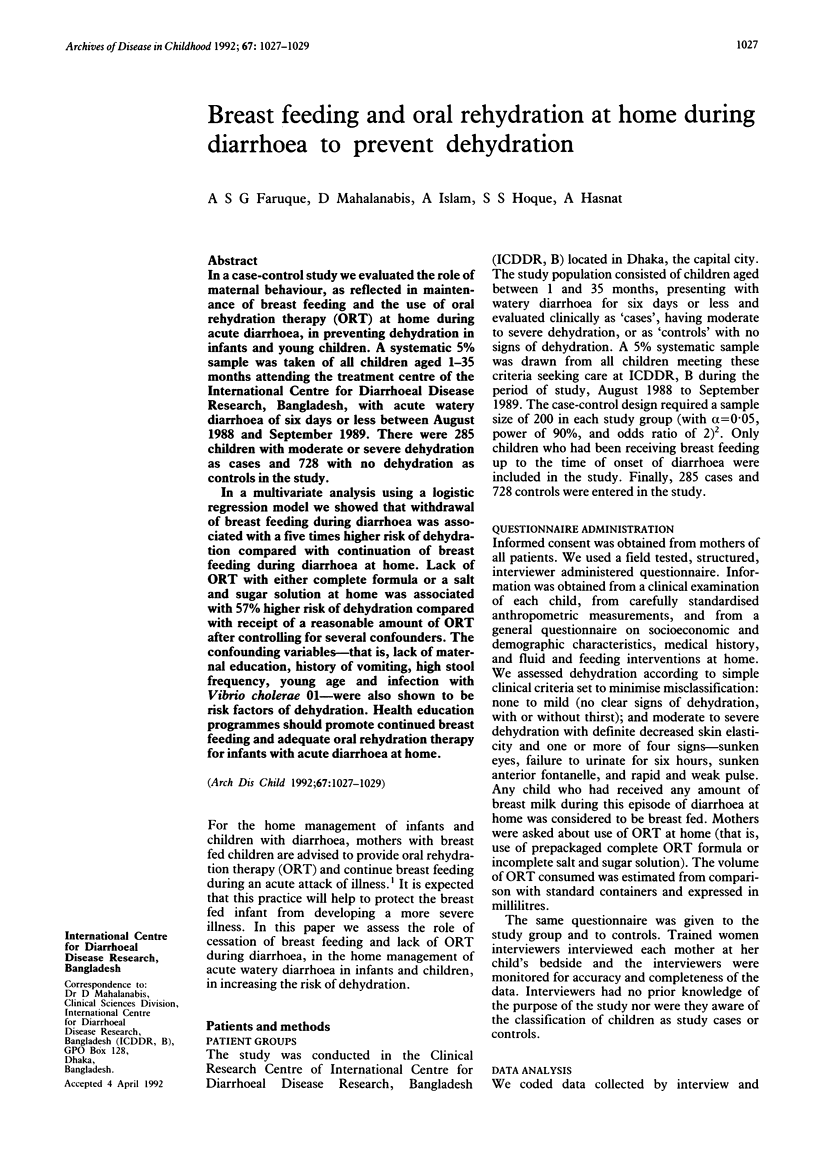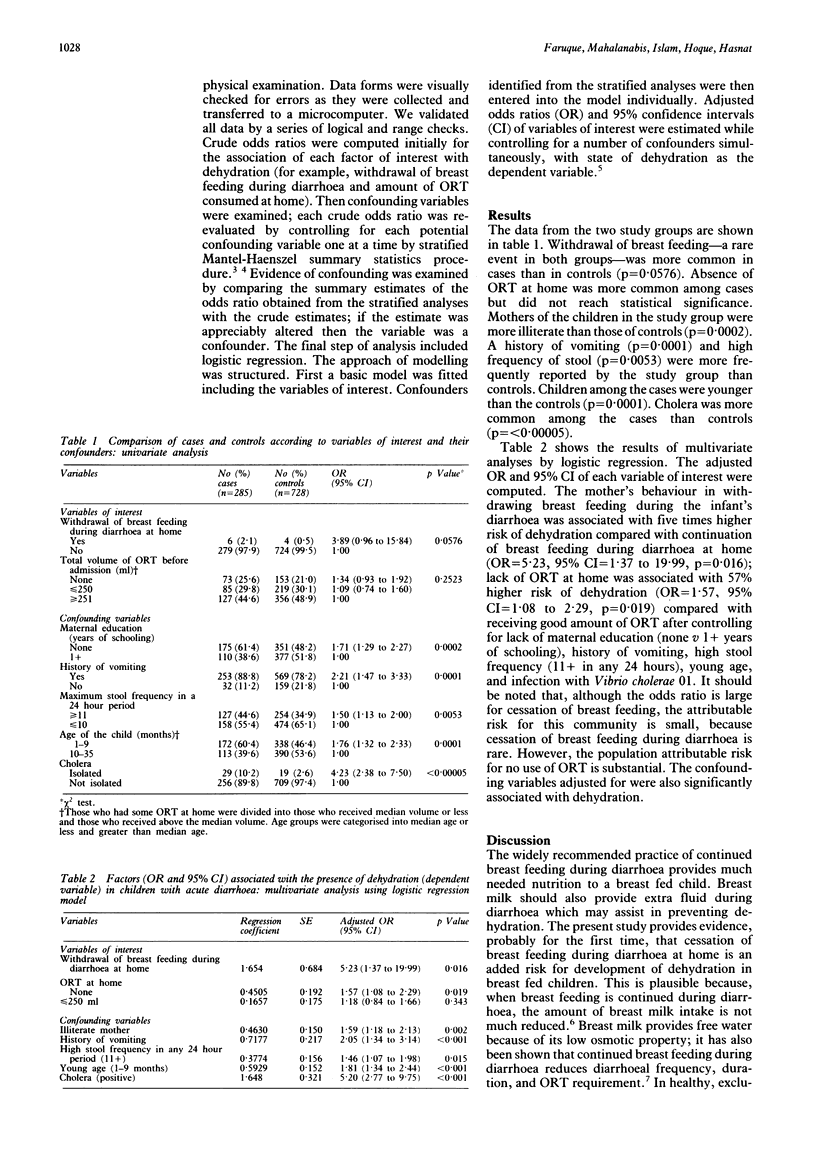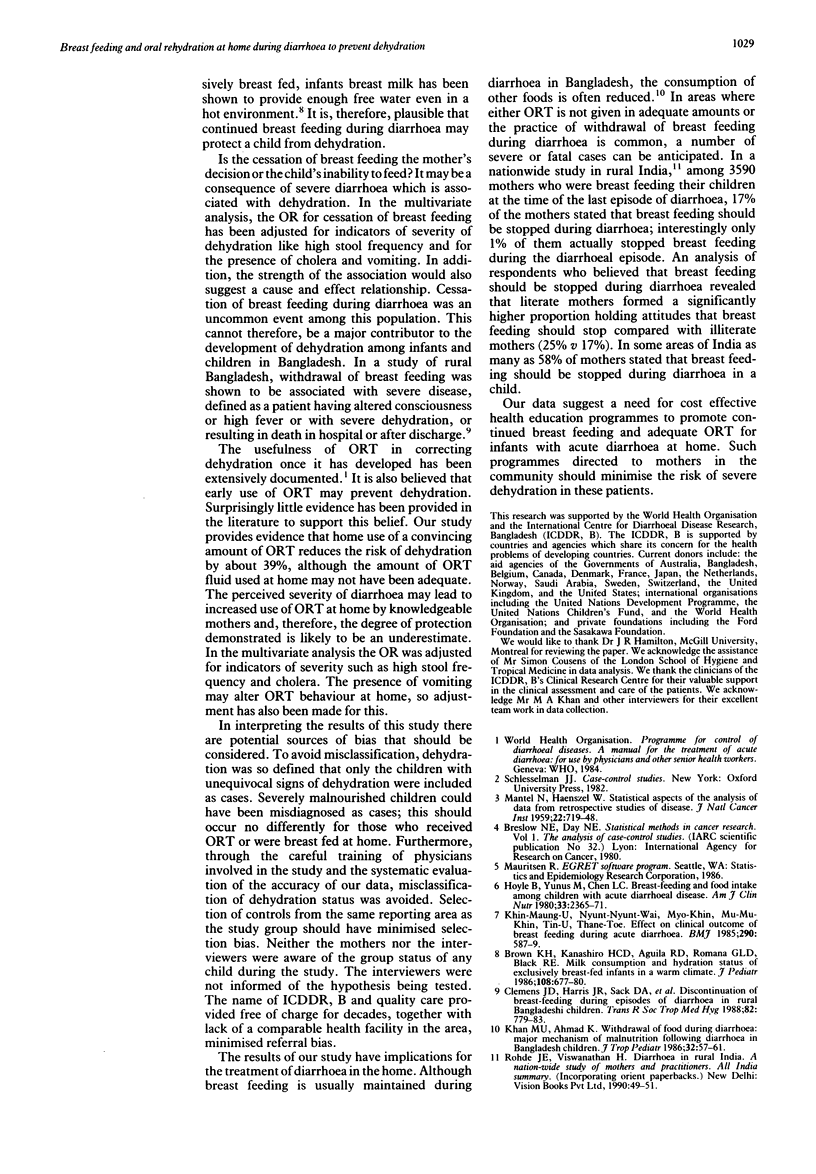Abstract
In a case-control study we evaluated the role of maternal behaviour, as reflected in maintenance of breast feeding and the use of oral rehydration therapy (ORT) at home during acute diarrhoea, in preventing dehydration in infants and young children. A systematic 5% sample was taken of all children aged 1-35 months attending the treatment centre of the International Centre for Diarrhoeal Disease Research, Bangladesh, with acute watery diarrhoea of six days or less between August 1988 and September 1989. There were 285 children with moderate or severe dehydration as cases and 728 with no dehydration as controls in the study. In a multivariate analysis using a logistic regression model we showed that withdrawal of breast feeding during diarrhoea was associated with a five times higher risk of dehydration compared with continuation of breast feeding during diarrhoea at home. Lack of ORT with either complete formula or a salt and sugar solution at home was associated with 57% higher risk of dehydration compared with receipt of a reasonable amount of ORT after controlling for several confounders. The confounding variables--that is, lack of maternal education, history of vomiting, high stool frequency, young age and infection with Vibrio cholerae 01--were also shown to be risk factors of dehydration. Health education programmes should promote continued breast feeding and adequate oral rehydration therapy for infants with acute diarrhoea at home.
Full text
PDF


Selected References
These references are in PubMed. This may not be the complete list of references from this article.
- Brown K. H., Creed de Kanashiro H., del Aguila R., Lopez de Romana G., Black R. E. Milk consumption and hydration status of exclusively breast-fed infants in a warm climate. J Pediatr. 1986 May;108(5 Pt 1):677–680. doi: 10.1016/s0022-3476(86)81040-x. [DOI] [PubMed] [Google Scholar]
- Clemens J. D., Harris J. R., Sack D. A., Huda M. N., Chowdhury S., Ali M., Rao M. R. Discontinuation of breast-feeding during episodes of diarrhoea in rural Bangladeshi children. Trans R Soc Trop Med Hyg. 1988;82(5):779–783. doi: 10.1016/0035-9203(88)90235-0. [DOI] [PubMed] [Google Scholar]
- Hoyle B., Yunus M., Chen L. C. Breast-feeding and food intake among children with acute diarrheal disease. Am J Clin Nutr. 1980 Nov;33(11):2365–2371. doi: 10.1093/ajcn/33.11.2365. [DOI] [PubMed] [Google Scholar]
- Khan M. U., Ahmad K. Withdrawal of food during diarrhoea: major mechanism of malnutrition following diarrhoea in Bangladesh children. J Trop Pediatr. 1986 Apr;32(2):57–61. doi: 10.1093/tropej/32.2.57. [DOI] [PubMed] [Google Scholar]
- Khin M. U., Nyunt-Nyunt-Wai, Myo-Khin, Mu-Mu-Khin, Tin U., Thane-Toe Effect on clinical outcome of breast feeding during acute diarrhoea. Br Med J (Clin Res Ed) 1985 Feb 23;290(6468):587–589. doi: 10.1136/bmj.290.6468.587. [DOI] [PMC free article] [PubMed] [Google Scholar]
- MANTEL N., HAENSZEL W. Statistical aspects of the analysis of data from retrospective studies of disease. J Natl Cancer Inst. 1959 Apr;22(4):719–748. [PubMed] [Google Scholar]


